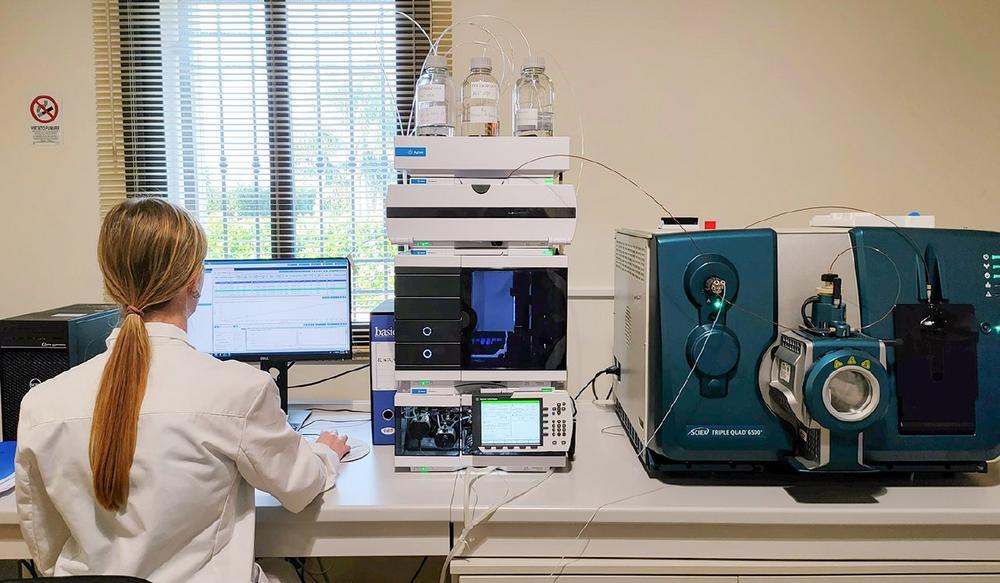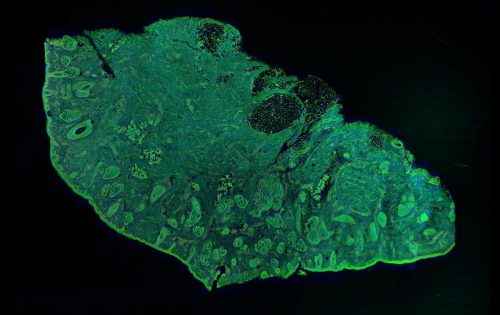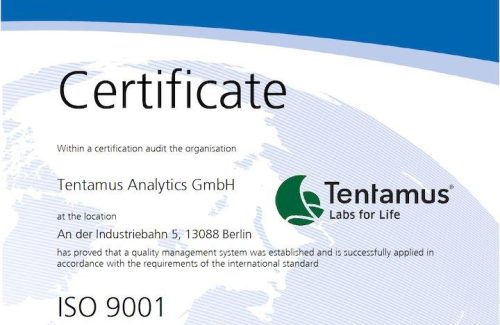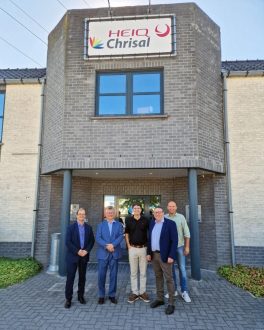
Analysis of Fosetyl-Al in food using LC/MS/MS
As soon as fosetyl-Al is applied, it rapidly degrades into ethyl phosphonic acid and phosphonic (phosphorous) acid molecules.
Precisely due to the particular nature of this active substance, Regulation (EC) 396/2005 specifies that the maximum residue levels (MRLs) of fosetyl-Al are expressed in the following form: fosetyl-Al (sum of fosetyl, phosphonic acid and their salts, expressed as fosetyl).
The analysis of fosetyl-Al is particularly important when it comes to foods produced in organic farming, in which its use is forbidden. The Ministerial Decree (MD) of 10 July 2020, published in the Italian Official Gazette, states that, until 31 December 2022, the MRL for phosphonic acid is:
- 5 mg/kg for herbaceous crops
- 0 mg/kg for tree crops
- If ethyl phosphonic acid is detected, the limit of 0.01 mg/kg is applied.
According to EU Regulation 2019/552, fosetyl-Al is authorized in conventional agriculture in all EU countries, while only phosphonic acid is admitted in organic agriculture, but the MRLs are more restrictive. This is why Italian farms, that want to export to Europe, need to carry out this type of analysis.
Determination of fosetyl-Al, ethyl phosphonic acid and phosphonic acid
In September 2021, the laboratory of Tentamus Agriparadigma srl in Siracusa has accredited (according to ISO/IEC 17025) the method of analysis for the determination of fosetyl-Al, ethylphosphonic acid and phosphonic acid with a limit of quantification of 0.010 mg/kg for each analyte.
The analysis method for the detection of fosetyl-Al is the CVUA EURL-SRM Polar pesticides_ Version 12 Method 1.3 2021 and is accredited according ISO 17025 by ACCREDIA.
The final detection is performed by liquid chromatography with triple quadrupole detector (LC-
MS/MS) which allows to obtain the necessary LOQ to comply with the current regulations. The laboratory uses the best performing instrument on the market to increase the sensibility and to decrease the time of analysis.
The method has been validated on foods of plant origin with a
- high content of water
- high content of acid and water
- high oil content
- high sugar content and low water content
- high content of starch and/or protein, low in water and fat
as well as their processed products at concentrations of 0.010 mg/Kg and 0.100 mg/kg. At these concentrations all analytes reported very good precision and accuracy, lower than the 25% required by the legislation.
The laboratory tested the method through participation in international interlaboratory proficiency tests.
About Tentamus Agriparadigma
Tentamus Agriparadigma is a private laboratory established in 1987 and active in Italy with three operational offices in Ravenna, Signa (close to Firenze) and Syracuse.
It mainly deals with chemical and biological analysis of food and water with a particular specialization in the analysis of pesticide residues. Further information can be found at www.agriparadigma.it
Tentamus Group GmbH was founded in 2011. Tentamus is a global product and safety group with a core presence in Europe, UK, Israel, China, Japan, India and the USA. Accredited and licensed Tentamus Group tests, audits and consults on all products involving the human body (food & feed, pharmaceuticals & medical, agrosciences, cosmetics, agriculture & environment and nutraceutical & supplements). Tentamus Group is represented in over 85 locations worldwide. More than 3,500 highly-trained staff members work in over 3 million square feet of laboratory and office spaces. For further information please visit www.tentamus.com.
Tentamus Group GmbH
An der Industriebahn 26
13088 Berlin
Telefon: +49 (30) 206038-230
Telefax: +49 (30) 206038-190
http://www.tentamus.com
Tentamus Agriparadigma srl
Telefon: +39 392 / 9775385
E-Mail: claudia.angelino@agriparadigma.it
![]()



